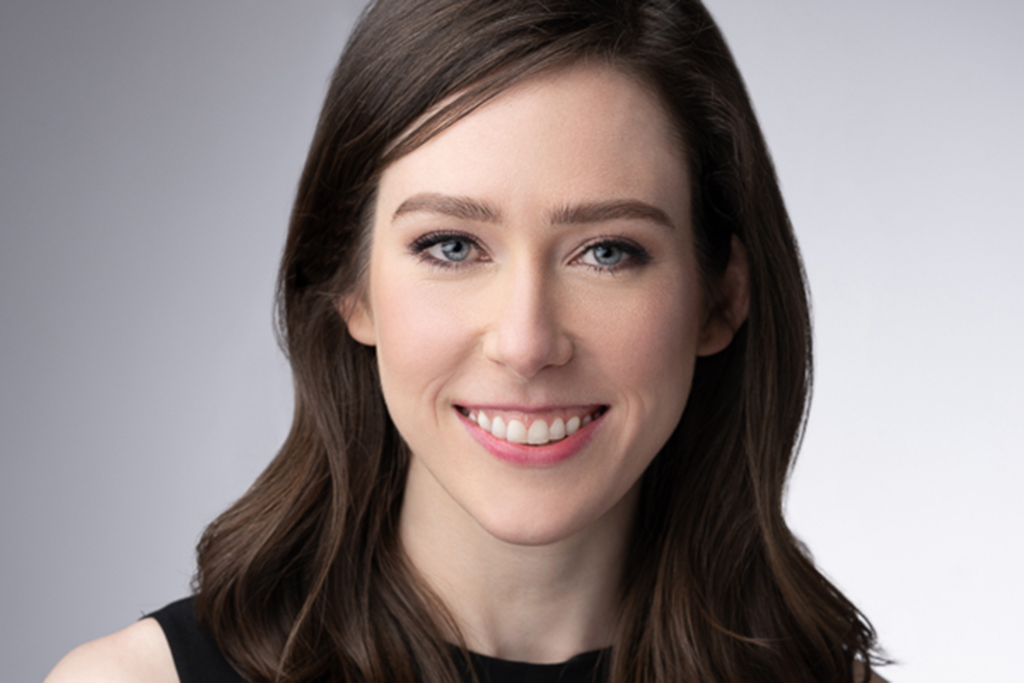January 23, 2024

As we enter 2024, we’re all still riding the tidal wave that caught up the whole financial ecosystem last year, namely artificial intelligence. Generative AI burst onto the scene at the end of 2022, focusing everyone’s attention on this startlingly novel technology and, more deeply, on the strides being made by other forms of AI. This makes today’s guest the perfect person to launch us into the new year. She is Elizabeth Kelly, Special Assistant to the President for Economic Policy at the White House National Economic Council. Elizabeth helped to lead the executive order that was issued last year by President Biden, and she is also one of the U.S. leaders driving the growing global dialogue on AI.
Rising use of AI is going to change every facet of our lives, which means nearly every realm of government activity. As a result, the White House executive order takes an “all of government” approach, mandating a wide swath of agencies to develop AI fact-finding, strategies and policies. Many of the major U.S. financial regulatory bodies are actually “independent” agencies, rather than part of the administration, and so the order didn’t directly cover some of the major U.S. government players in finance. However, Elizabeth herself comes from the financial sector and has deep insights about what is on the horizon.
In our conversation, she talks about how the executive order came to be and what it requires. She talks about the key challenges it addresses. One is the sheer opacity of AI systems, the challenges of “explainability” and “black box” decision making that is very hard to oversee and audit. A related concern is that AI may both introduce and exacerbate bias in financial systems, by, among other things, “learning” from biased training data that reflects how things are done today (and, again, making such problems even harder to detect). Another worry is about impacts on market competition, with the risk that today’s Big Tech companies have massive market advantages due to the sheer volume of the data they access and control.
Elizabeth talks about all of these problems, and also about the upside opportunity that AI has huge potential to help us do things better. On the plus side, she has interesting thoughts on how government, itself, will be using these new capabilities. She shares insights about the international dialogue underway, including the policy strategies emerging in the U.K. and in Europe.
In my career, I’ve never seen a technology trend that has followed the arc of generative AI, in the sense of making it onto the short list of priorities of nearly every leader, everywhere, at the same time. Every bank CEO, every agency head, every member of congress, every advocate – everyone made a point of educating themselves on ChatGPT and GenAI and thinking about how it may change things, all within just a few months in early 2023. This intense focusing of attention creates a lot of opportunity to engage in robust dialogue on a novel challenge, with everyone paying attention.
Elizabeth Kelly is Special Assistant to the President for Economic Policy at the White House National Economic Council. She leads work on financial regulation and technology policy, including artificial intelligence. She previously served as a senior policy advisor on the Biden-Harris Transition Team, where she helped drive efforts related to the American Rescue Plan, and in the Obama White House. In the private sector, Elizabeth was Senior Vice President of Growth for Capital One Investing, which acquired United Income, a fintech company that she helped grow as SVP of Operations.
Elizabeth holds a J.D. from Yale Law School, an MSc in Comparative Social Policy from the University of Oxford, and a B.A. from Duke University. She is a term member of the Council on Foreign Relations.
We have exciting episodes ahead, including two that I recorded late last year at the Singapore Fintech Festival. One is with Michael Wiegand, Director of the Inclusive Financial Systems (IFS) program at the Bill & Melinda Gates Foundation, coming back on the show a second time. The other is with Kwame Oppong, Head of FinTech and Innovation at the Bank of Ghana. We also have a great show coming up with Simone di Castri and Matt Grasser from the Cambridge Centre for Alternative Finance SupTech Lab, as well as a show with Itai Damti of Unit – and much more.
We’re also thinking about some innovations for Barefoot Innovation, spending more time in brainstorming deeply with thoughtful people on what is happening and how to shape it. Do let us know what you most like to hear about!
If you enjoy Barefoot Innovation, it’s important to take a moment to leave us a five-star rating on your favorite podcast platform to help us reach more people. Also please find me on social media to continue the conversation.
Stay informed by joining our mailing list
